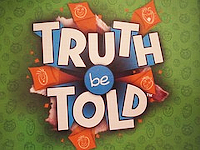Let no unwholesome word proceed from your mouth, but only such a word as is good for edification according to the need of the moment, so that it will give grace to those who hear. (Ephesians 4:29 NAS)
Christmas is a time for family warmth and home coming, but for some people, it is the season of much stress with traveling, spending, preparing, among other things. Thankfully, these days, keeping in touch is no longer limited to a telephone call or occasional meeting up. We can stay connected with our loved ones and friends through channels such as the social media or online video calling. We can also communicate, share text, photos, videos, music and other media files with just about everybody around the world using mobile phones, digital tablets, or computers.
Nevertheless, when we share about our private lives to the public, we need always to be careful because such sharing can affect others and how they think of us. Our bosses, colleagues, relatives, and friends, for example, might see us as weak or ill-mannered reading some of our status update on social networks. Leaks through words of mouth by people sharing what they read from our social media postings and blogs can also spread and cause damage to relationships.
When I first started a blog, it was not something I wanted to do, but because I was assigned as a journalist by my editor to write an article on blogging and to interview people to find out their thoughts on the subject. A number of people I interviewed gave their reason for blogging as wanting to make friends who share similar interests, while some said they blog to de-stress or fight for a cause.
“Of course, we run the risk of facing ridicule and criticism from people posting their comments,” said an ardent blogger. “But we can deal with it.”
Like many bloggers, I frequently offload my burdens writing about the things that happened in my life. Many people came to know me and my innermost thoughts reading my blog. Today, my life is an open book, found within the pages of my devotional writings. Blogging is my way of serving God and His people, a medium of choice to reach out to the masses in the world. With my Christian blog linked to various social network communities, every blog entry I post gets to reach out to the masses and the targeted people for the Lord.
Of course, once in a while, I would receive some argumentative or negative comments at my blog or social network pages. But by the grace of God through the guidance of the Holy Spirit in the wisdom of our Lord, those were dealt with without quarrel or hurtful feelings.
What about the rest of us? How do we participate online? Do we turn the social media into avenues by which we serve God, His people, and the people who are yet unsaved? Or do we put to shame the Lord’s name by the things we write on our blogs and social networks’ status?
As we prepare ourselves for the coming year, let us remember not to let negative words proceed from us (Ephesians 4:29, 31), for such can hurt others and expose us to ridicule. Remember, we are to give account every careless word we use (Matthew 12:36). Whether we are conversing, sharing videos, images, music or other types of media files, let us share only whatever is true, noble, right, pure, lovely, admirable, or praiseworthy (Philippians 4:8).
Dear Lord, forgive us for too often sharing to the world things that do not edify or minister. Help us not let our bitterness, wrath, anger, thoughtless words, and private lives hurt or mislead others. Remind us constantly Lord to share words of encouragement and things that are true, noble, right, pure, lovely, admirable or praiseworthy. As we prepare ourselves for the coming year Lord, protect us from the vices that constantly attempt to lure us away from You or into unnecessary commitment. Do not allow us to fall prey to the evil one Lord but guide us by Your Spirit to wisely use online tools such as blogs and the social media carefully for the extension of Your kingdom.



















